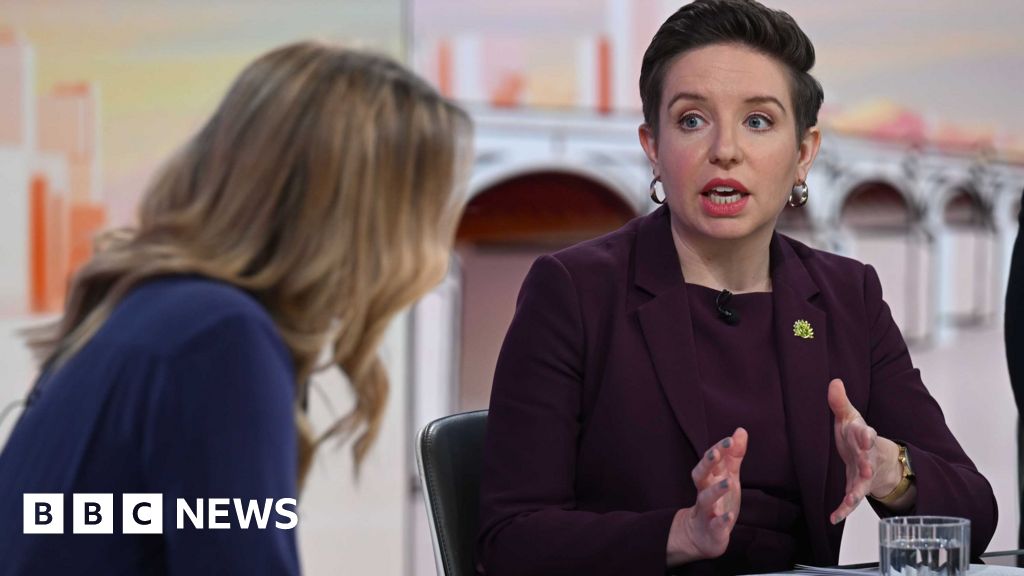Interim guidance on single-sex spaces is “ill-considered and impractical” and should be withdrawn, the Green Party has said.
Green Party co-leader Carla Denyer told the BBC the guidance puts trans people at risk of discrimination, while Lib Dem leader Sir Ed Davey said there were questions over how it would be enforced.
Asked if the government would ban trans people from using changing rooms or toilets they wish to use in its own buildings, he told the BBC: “In reality, when you say ban, am I going to be standing outside toilets? I’m probably not.
The UK government has welcomed the Supreme Court ruling, saying it brings “clarity” for women and service providers.
A spokesperson added: “We will review and update policy wherever necessary to ensure it complies with the latest legal requirements.”
Last week the Supreme Court found the terms “woman” and “sex” in the 2010 Equality Act .
As part of the judgement in the case brought against Scottish ministers by the group For Women Scotland, Supreme Court judge Lord Hodge stressed that the law still gives protection against discrimination to transgender people.
Carla Denyer, co-leader of the Green Party of England and Wales, said the interim guidance, which was published on Friday following the Supreme Court ruling on 15 April, was “rushed and ill-thought out”.
“It’s been really obvious that they have not listened to trans people,” she told BBC One’s Sunday with Laura Kuenssberg programme.
She added that the guidance put trans people at risk of discrimination, especially in workplaces, and “seems to fly in face of the strong tradition of tolerance we have in Britain”.
The Green Party said in a statement that the guidance was likely to cause “distress” to the trans community as well as “further confusion to employers, businesses and service providers” .
It is calling for the guidance to be withdrawn “until the EHRC can produce something more thought-through which takes into account the voices of all those affected”.
Denyer questioned what should happen if trans people are not allowed to go to the toilet of their gender or their birth sex.
When asked to clarify this, the EHRC pointed to a section of the Supreme Court ruling stating that trans men could be excluded from women’s facilities “where reasonable objection is taken to their presence, for example because the gender reassignment process has given them a masculine appearance or attributes to which reasonable objection might be taken” in the context of a women-only service.
However, the guidance says where possible mixed-sex toilets or changing facilities should be provided, with lockable rooms intended to be used by one person at a time, in addition to single-sex facilities.
Denyer also raised concerns that for lesbian associations or venues which wanted to include trans women, the advice appeared to say they would not be allowed to.
The Lib Dem leader said his party accepted the Supreme Court ruling but there needed to be more debate in Parliament to reach a clear solution that “respects people’s rights”.
The EHRC, which enforces equalities law and provides guidance to policymakers, public sector bodies and businesses, is expected to launch a two-week consultation to seek views from those affected in May.
The watchdog is then aiming to provide an updated code of practice to the government for ministerial approval by the end of June.
A spokesperson for the EHRC said: “The law is as set out in the Supreme Court’s very readable judgment and is effective immediately.
“Employers, service providers and others with duties under the Equality Act must follow the law and should take appropriate specialist legal advice where necessary.
“But we know many people have questions about the consequences of the judgment and what it means for them, which is why we issued this [guidance] in the interim.”
The spokesperson added: “We remain committed to promoting equality and tackling discrimination in all its forms.”
to keep up with the inner workings of Westminster and beyond.
Source: www.bbc.com
